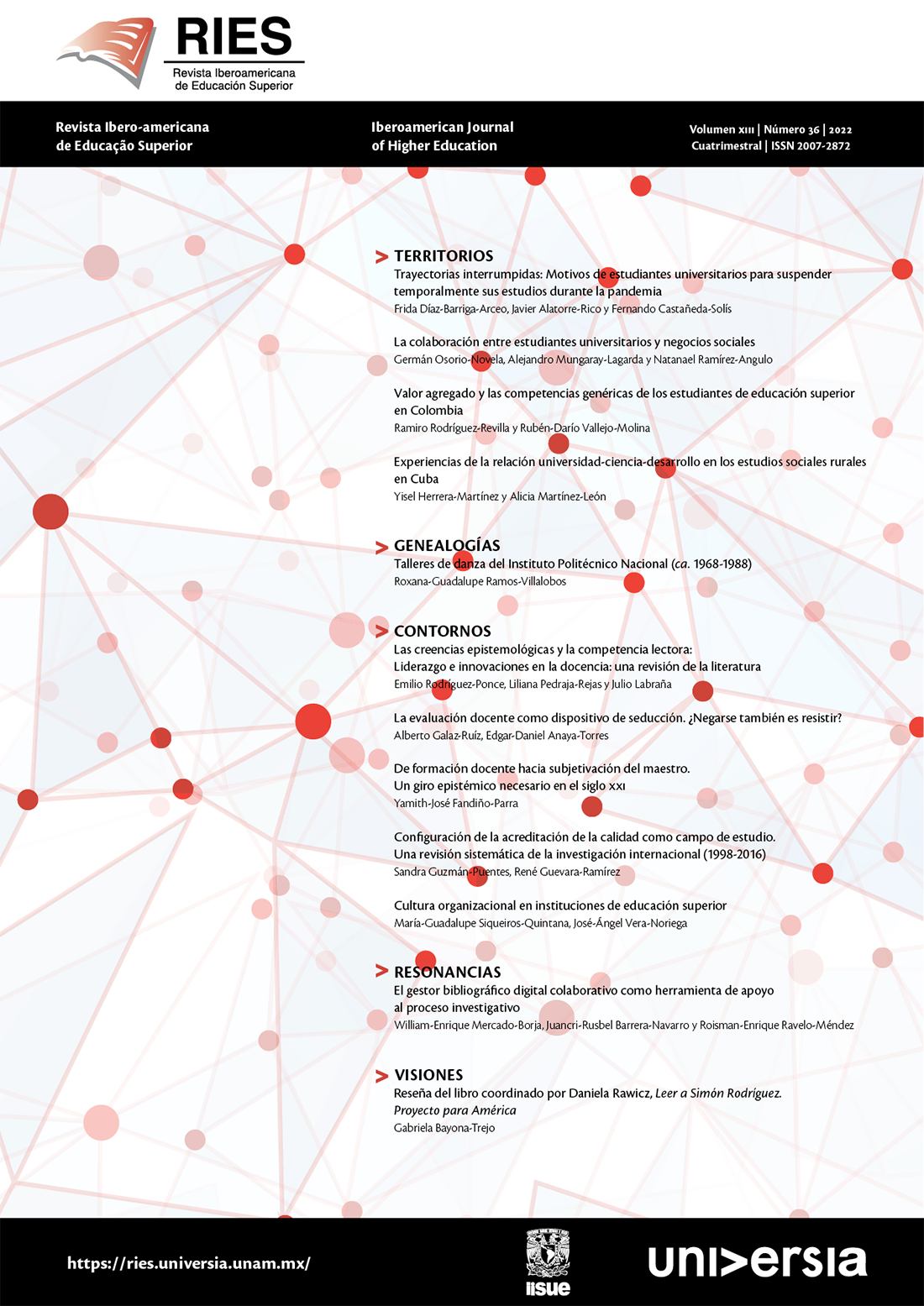La evaluación docente como dispositivo de seducción. ¿Negarse también es resistir?
DOI:
https://doi.org/10.22201/iisue.20072872e.2022.36.1187Palabras clave:
evaluación, docencia, política, subjetividad, poder y resistencia, México, ChileResumen
Este artículo realiza un análisis sobre la evaluación docente en tres momentos. El primero aborda una descripción histórico-política sobre sus antecedentes, articulaciones con organismos internacionales y políticas educativas en México y Chile. El segundo entrama un análisis hermenéutico que establece la relación del docente como sujeto de rendimiento, resultado de la evaluación e instrumentos específicos como: Perfiles, Parámetros e Indicadores (PPI) en México, y el Marco para la buena enseñanza (MBE), desde categorías enunciadas por Foucault y Han. Finalmente, en un tercer momento, se evidencian las grietas para repensar las subjetividades dentro del sistema educativo en general y el de la evaluación en particular.


